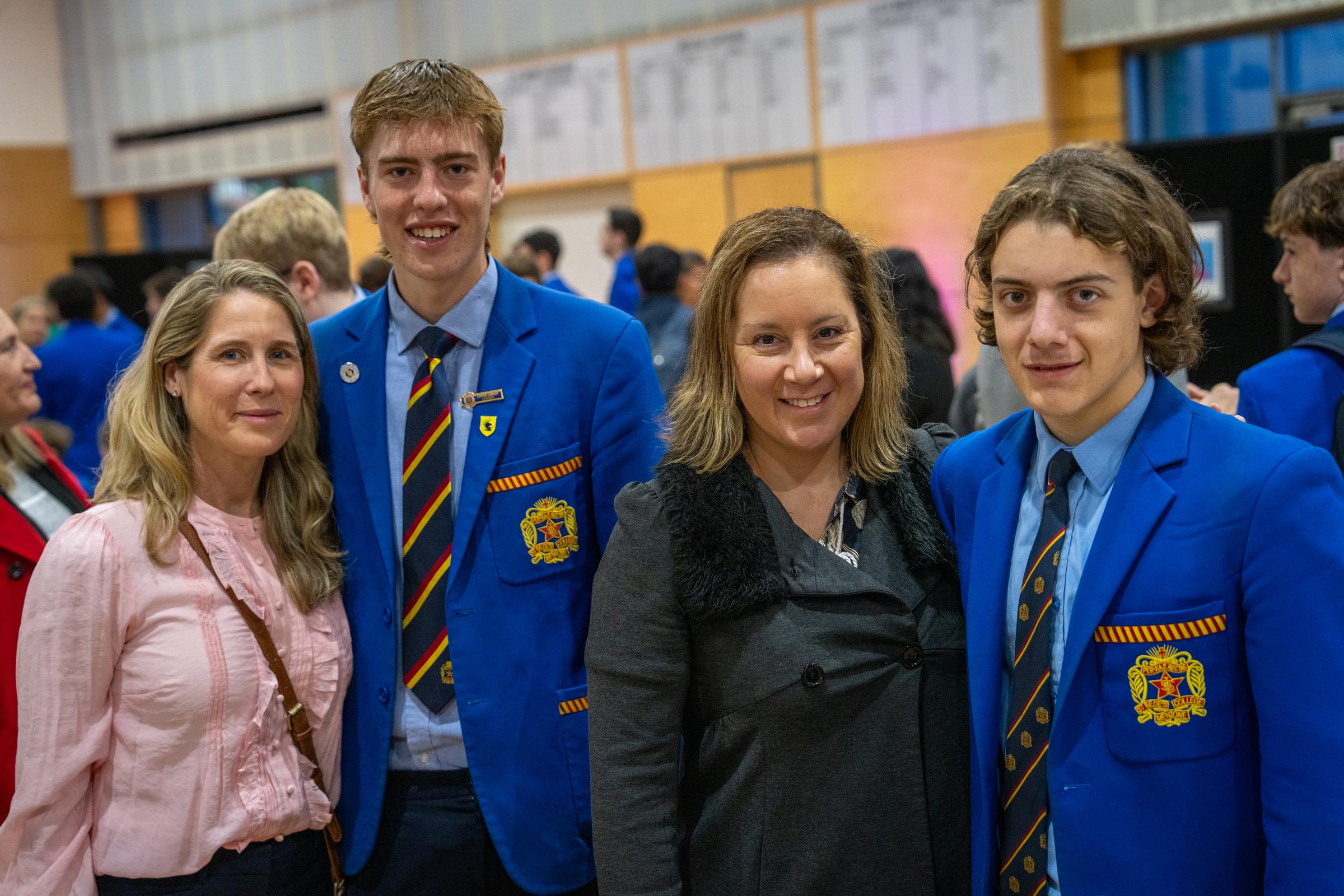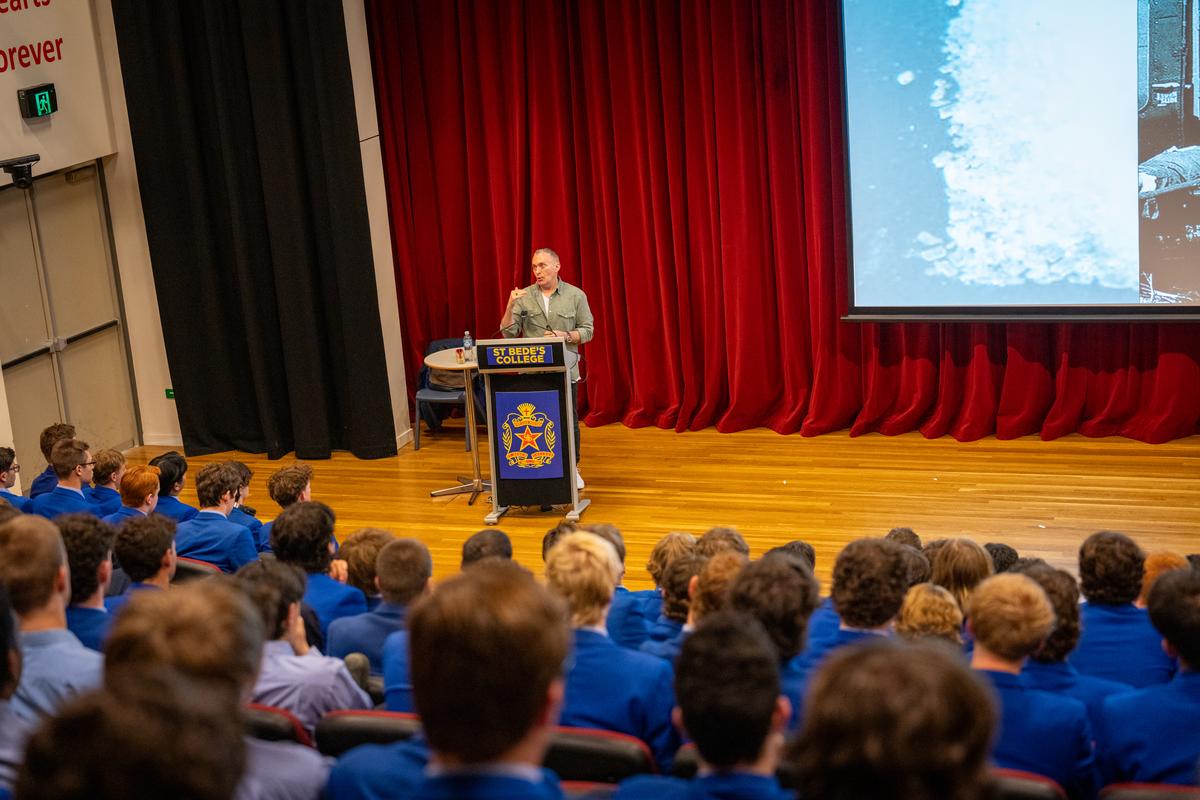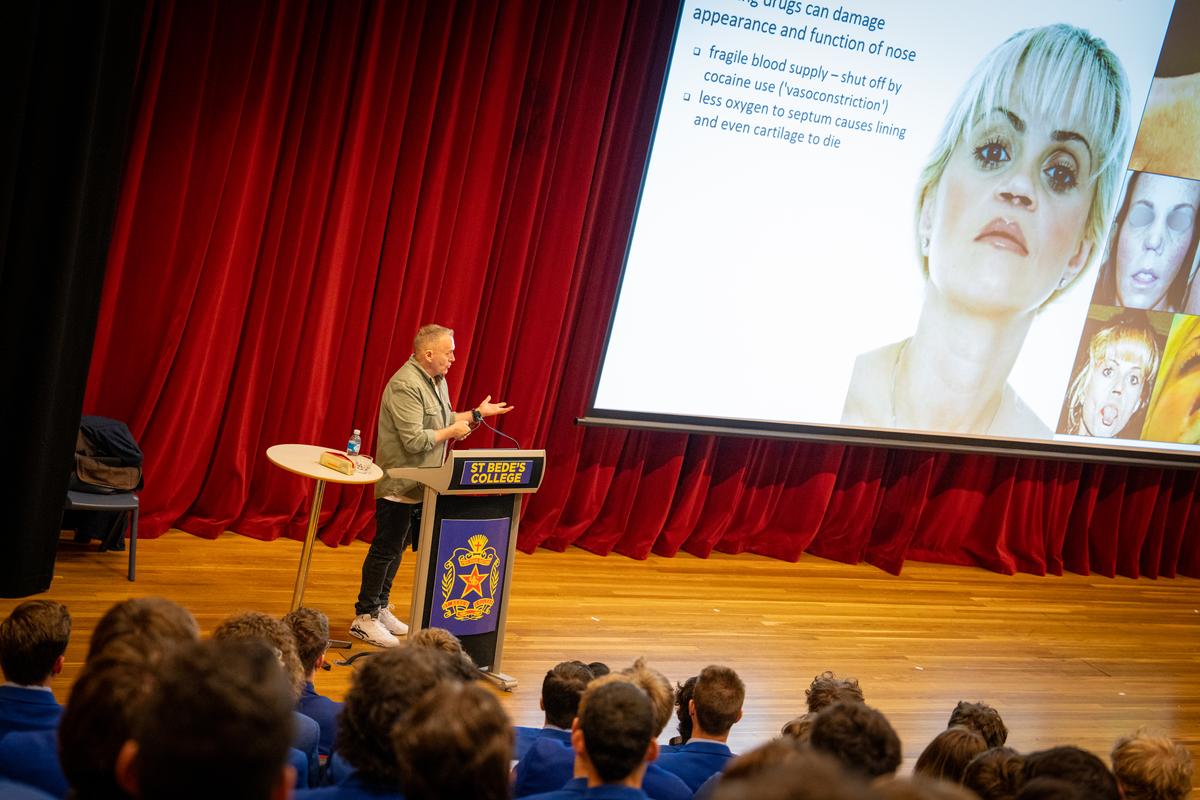Student Wellbeing

Embracing Positive Masculinity
Steps Toward a Healthier Community
In today’s evolving society, understanding, discussing and role-modelling positive
masculinity is more crucial than ever.
Developing a healthy sense of masculinity positively impacts our students’ personal growth, relationships and overall wellbeing. Positive masculinity is not a trendy concept, it is a foundational element for building a respectful and inclusive community, most especially in our schools.
Positive masculinity involves embracing qualities traditionally associated with
masculinity, such as strength and leadership, while also valuing empathy,
vulnerability and cooperation. It encourages males to be their authentic selves
without conforming to outdated stereotypes that equate manliness with aggression or
emotional suppression.
As a College, we continue to nurture and educate our students in a caring
environment where they can feel safe to speak up, speak out and learn from positive
role models on what it is to have good character. This is an evolving space that we
address with our students and staff via:
Education and Awareness – Facilitating active and open discussions across
student levels and staff about gender norms and what positive masculinity is.
Role Models and Mentors - Encouraging all staff members to be respectful, positive
role models our students can look up to, and to call out and address behaviour that
is not acceptable.
Inclusive Activities - Offering activities that promote teamwork, collaboration,
inclusivity and emotional intelligence.
Community Collaborations – Working with girls’ schools including Kilbreda College
and Mentone Girls Grammar School to give our students social, creative, academic
and sporting opportunities to work together.
Support Systems - Providing resources such as counselling and peer support
groups where students can discuss their feelings and experiences in safe, non-
judgemental environments.
Respect – Teaching respectful brotherhood and sisterhood is one of our Guiding
Principles and an integral, everyday part of our College life. This values-driven
education and way of being is what unites us all at the College.
We delved deeper into this important topic with Senior Years Students at Year 10 to
12 assemblies, recently facilitated by Mark Jones, Deputy Principal – Students. This
was well received by students and staff.
“Our sessions try to highlight the importance of our students being their own person.
To identify what they stand for and not just following the crowd.
We try to empower our students to be able to walk away from the mob and call out
behaviour that they know is hurtful to others.” Mark Jones
Child Safety
Our College’s Child Safe School Committee continues its work across 2024, united
by its purpose to oversee and ensure the Child Safe Standards are met and
fully implemented.
This requires the Committee to have appropriate policies developed by College personnel and to ensure that all practices undertaken by College staff are compliant of the standards.
The Committee assists our Principal and the College Board in ensuring that appropriate checks and balances are in place for the safety of all students.
Our 2024 Committee members include:
Scott Cadby (Chair) – Wellbeing Coordinator
Mark Jones - Deputy Principal – Students
Trent Collins – Campus Director Bentleigh East
Chris Mills – Senior Years Coordinator
John McAlroy – Middle Years Coordinator
Owen Lalor – McCristal Coordinator
Carmel Moloney – Year 9 Coordinator
Billy Natsioulas – Year 7 Coordinator
Tyler Bierman – College Counsellor
Pooja Gupta – College Counsellor
Iris Starcheus - College Counsellor
An integral part of Child Safety is student voice. The College’s Child Safe School
Student Sub Committee is comprised of students across Years 7 to 11, who work
alongside the staff committee to ensure students are heard and a valuable voice in
the process.
These student members were nominated for inclusion by their year level and house
coordinators.
Our 2024 Student Sub Committee includes:
Scott Cadby (Chair) – Wellbeing Coordinator
Student Members - Leo McC, Jonah C, Dan P, Lucca M, Xander C, Archer O’C, Oliver B
Harrison McC, Christopher S, Oliver McD, George S, Edward H, Thomas R
Hamish D.
We look forward to sharing some of the important work these committees
continue to do within the child safety space.
Scott Cadby
PACFA Reg. Clinical (21605)
BA (Psych) MPsychotherapyCouns
Wellbeing Coordinator
Supporting Teens Through Change
Seasons for Growth Student Support Program During Term 3, St Bede's College is offering a successful education program for young people about change, loss and grief.
Seasons for Growth focuses on skills-building around self-esteem, managing feelings, problem-solving, decision-making, effective communication and support networks.
Students may require such support and skills when experiencing a change to family dynamics, or when there's a death of someone important to them.
Learning how to effectively manage and cope with these changes is of great benefit. Seasons for Growth is evidence-based and facilitated by Brother Tony Cummins in small groups during the school day.
For more details or to register your child, please reach out by Monday 3 June to btc@stbedes.catholic.edu.au or on 9582 5958. We welcome all students who would benefit from taking part of this valuable program.
Br Tony Cummins
Campus Minister
Journeying to Adulthood
As part of Student Wellbeing, our Year 10 to 12 students attended an important session by Founder of Drug and Alcohol Research and Training Australia, Paul Dillon.
Paul's visits are always incredibly educational and very engaging, giving students facts and real-life stories on the impacts of drugs, alcohol, smoking and vaping. He also teaches students about prevention, safety and responsibility, so they can look after themselves and their friends should the situation arise. Our students share their thoughts about the sessions.
"Drinking can lead to life long brain underdevelopment and not growing to your maximum potential. Males brains fully develop at age 40, and drinking can affect my brain."
"Learning how to look after friends if they're intoxicated and knowing when assistance is needed is extremely important, as many for many of us it may be a scary situation."
"I have enjoyed all of Paul's talks throughout Year 10, 11 and 12. I hope St Bede's College keeps asking him to come speak here for as long as possible."
"It was important to me as it sinks in much more when its engaging and I've remembered a lot more from his presentation than just being told about the effects of drugs and alcohol."
"He was very informative and fun to listen to. It was really helpful in the situation that I could help save someone's life. It definitely left a lasting impact on all of us."


